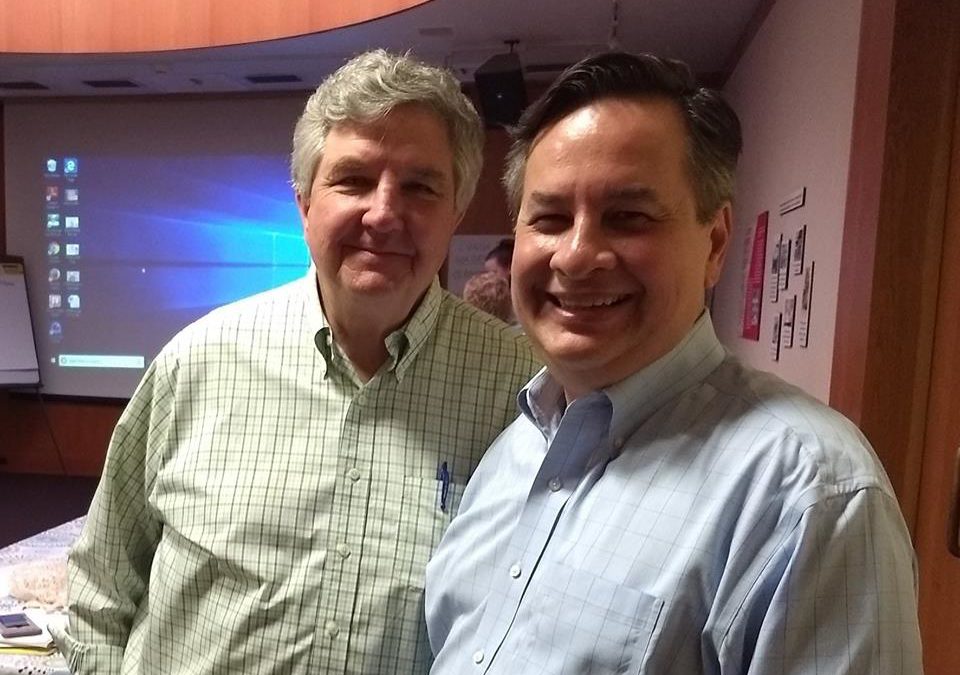.
Max A. van Balgooy, Assistant Professor in the Museum Studies Program at George Washington University, teaches museum management, historical interpretation, and community engagement. A frequent author, he is president of Engaging Places, a strategy firm for museums and communities, and directs the History Leadership Institute of the American Association for State and Local History (AASLH). The former Director of Interpretation and Education at the National Trust for Historic Preservation, he and I worked on projects at Drayton Hall and taught AASLH’s workshops on historic house museum management for eighteen years.
A Crucial Contribution to Our Understanding
of Our History and Future
MVB: Unlike most house museums in the United States, Drayton Hall chose to remain unfurnished and unrestored when it opened to the public in the 1970s. It seemed crazy at the time, and for some, it still does. But that distinction created a different visitor experience that emphasizes architecture and historic preservation. Drayton Hall is thereby different from nearby historic sites, so it complements rather than competes with others.
When I joined the National Trust in the early 2000s, Drayton Hall and a few other Trust sites were at the forefront in interpreting African American history. At Drayton Hall, you integrated African American history into the daily tours and programs. Too often, historic sites make African American history a sidebar or a separate tour. It shouldn’t be. Since the history of the site was integrated, its interpretation should be, too, as should be its school programs, public programs, even shop merchandise.
Main image, above: L-r George W. McDaniel and Max Van Balgooy
 George W. McDaniel, Ph.D., is President of McDaniel Consulting, LLC, a strategy firm that helps organizations use history to build bridges within itself and to its broader constituents. The company’s tag line, “Building Bridges through History,” is grounded in McDaniel’s personal beliefs and his experience in site management, preservation, education, board development, fundraising, and community outreach. Rather than using history to divide us, he strives to help organizations use history, especially local history, to enhance cross-cultural understanding and to support local museums, preservation, and education. Dr. McDaniel led volunteer efforts with Emanuel AME Church and historical organizations in Charleston to use historic preservation to enhance racial reconciliation and healing. McDaniel is also the Executive Director Emeritus of Drayton Hall, a historic site in Charleston, SC, owned by the National Trust for Historic Preservation. He retired from Drayton Hall in 2015 after 25 years of distinguished service.
George W. McDaniel, Ph.D., is President of McDaniel Consulting, LLC, a strategy firm that helps organizations use history to build bridges within itself and to its broader constituents. The company’s tag line, “Building Bridges through History,” is grounded in McDaniel’s personal beliefs and his experience in site management, preservation, education, board development, fundraising, and community outreach. Rather than using history to divide us, he strives to help organizations use history, especially local history, to enhance cross-cultural understanding and to support local museums, preservation, and education. Dr. McDaniel led volunteer efforts with Emanuel AME Church and historical organizations in Charleston to use historic preservation to enhance racial reconciliation and healing. McDaniel is also the Executive Director Emeritus of Drayton Hall, a historic site in Charleston, SC, owned by the National Trust for Historic Preservation. He retired from Drayton Hall in 2015 after 25 years of distinguished service.
A frequent writer, speaker, and facilitator about such issues, he can be reached at gmcdaniel4444@gmail.com or through his website at www.mcdanielconsulting.net.
All images courtesy of the author unless otherwise noted.

 McDaniel Consulting LLC is a strategy firm that helps organizations use history to build bridges within itself and its broader constituents.
McDaniel Consulting LLC is a strategy firm that helps organizations use history to build bridges within itself and its broader constituents.